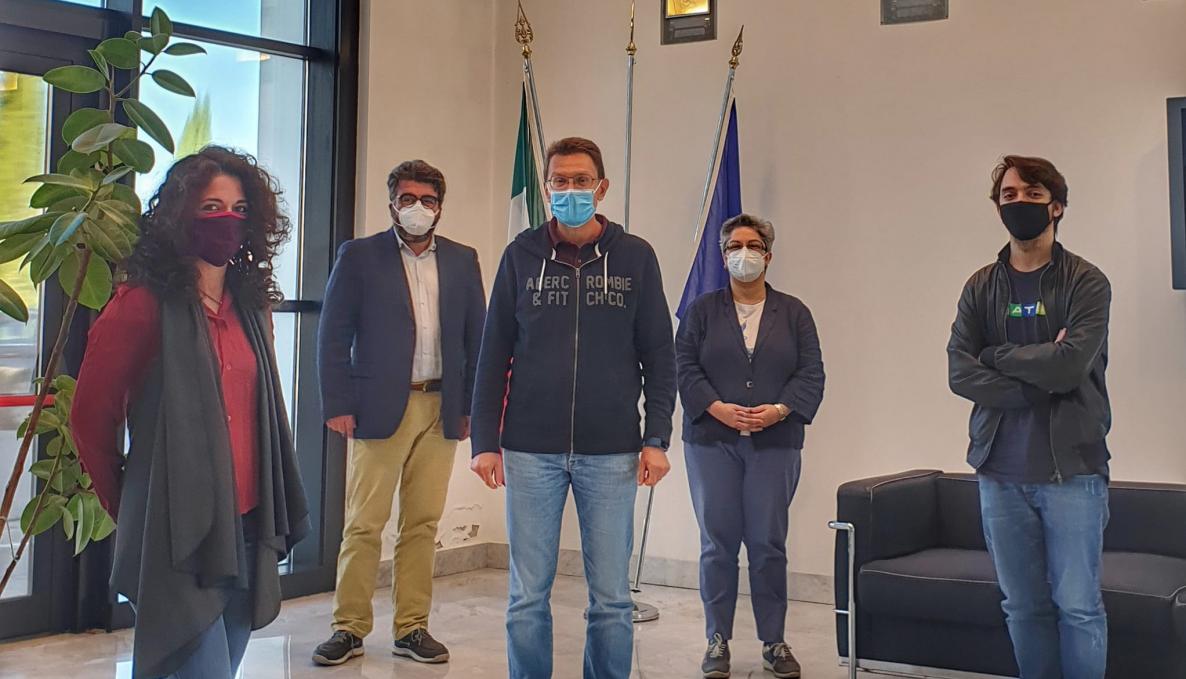5G TECHNOLOGY: SANT’ANNA SCHOOL PROFESSOR SERVES AS THE PROJECT COORDINATOR OF “5G-ENABLED SOS INTELLIGENT ASSISTANT” FUNDED BY TUSCANY REGION TO IMPROVE FIRST AID AND PERSONALISED PRIMARY CARE

The “SOSIA - 5G-enabled SOS Intelligent Assistant” project kick off meeting takes place at the TeCIP Institute (Communication, Information and Perception Technologies) of Sant’Anna School on Thursday, October 8, 2020 - Aquarium room. The “SOSIA - 5G-enabled SOS Intelligent Assistant” project has received funding from Tuscany Region under the Bando Salute initiative for primary care services in Tuscany. This three-year project started on 15 September 2020 is led by Luca Valcarenghi, professor of Telecommunications, with the collaboration of Maria Gagliardi, professor of comparative law at the Dirpolis (Law, Politics and Development) Institute. Anesthesiologist Vincenzo Lionetti from the Fondazione Toscana Gabriele Monasterio per la Ricerca Medica e di Sanità Pubblica is the expert partner of the project aimed to improve outcomes for patients within primary care.
When first aid or immediate primary care is required, it is essential that first aiders, professional or non-professional volunteers, and emergency service responders are equipped with everything they need to reduce access time to health services - the time it takes a person dialing the emergency service number until he/she gets access to the emergency medical dispatcher , hospital admission, and to effective primary care, i.e. personalized care for unknown or unconscious patients.
In Italy, we witness the increasing deployment of automated external defibrillator (AED) that can be used by private citizens. In addition, Emergency Departments (ED) face significant challenges in delivering high quality and timely healthcare on an ever -present background of increasing patient numbers and limited hospital resources. A mismatch between the demand of the patient and the capacity of the ED to deliver appropriated personalized treatment often leads to patient flow driven by inappropriate scheduling practices and emergency department crowding. This is associated with lower quality of primary care, delays in commencement of treatment and poor patient outcomes.
Advanced connectivity and features of the fifth generation of mobile communication (5G) have the potentials to improve first aid and patient primary care. Indeed, 5G is not only a new air interface providing larger capacity than 4G but it includes functionalities such as Multi-Access Edge Computing (MEC), Ultra Reliable Low Latency Communications (URLLC) and enhanced mobile Broadband (emBB), where a large amount of data can be reliably transmitted and quickly elaborated.
The objective of the 5G-enabled SOS Intelligent Assistant (SOSIA) is to provide an innovative system
for improving not only the emergency response but also the personalized healthcare delivery. The envisioned system is based on a novel device for assisting emergency first rescuer and on an artificial intelligence based patient dispatching in the emergency centers. SOSIA will be equipped with an RFID interface and a 5G interface. The RFID interface reads data related to patients’ anamnesis stored in an RFID patch that patients can voluntary wear or data who identify the patient's folder, stored elsewhere, for instance in electronic health records. Such information is quickly sent to emergency centers where an artificial intelligence-based device will find the first nearest hospital available to admit that patient.
The potentials of 5GSOSIA proposal are multifold. By reaching these objectives, 5G-SOSIA will improve the initial management of patient emergency care by rescuers. 5G-SOSIA system will reduce the time between first aid and the beginning of personalized treatment at hospital. In addition, this project has the potentials for the commercialization of SOSIA, as more than the AED, it will have a huge impact on the community.
The Tuscany Region initiative “Bando Ricerca Salute 2018” is aimed at funding research projects, technology innovation activity and performance management in healthcare services across the regional healthcare system.
Cover photo (from left to right): Silvia Fichera, post doctoral researcher at the TeCIP Institute; Vincenzo Lionetti; Luca Valcarenghi, Maria Gagliardi; Alessandro Pacini, Master's student in Computer Science and Networking at the TeCIP Institute.



